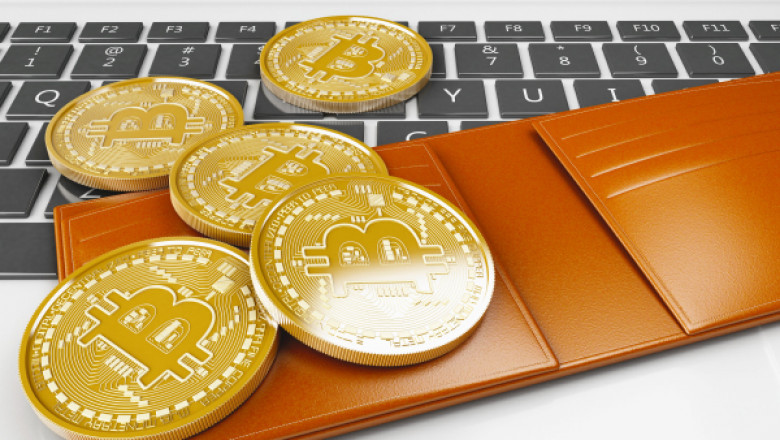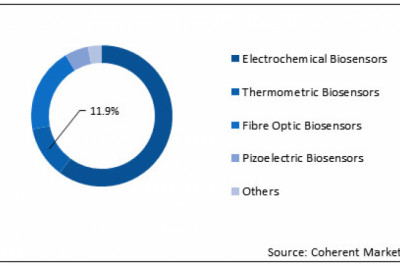views

Due to their many advantages over conventional fiat currencies, cryptocurrencies like Bitcoin and Ethereum are gaining in popularity. Understanding how blockchain wallets function is essential if you plan on using any of the aforementioned blockchain-based coins.
The article defines blockchain wallet development, discusses its potential applications, and outlines the various blockchain wallets available. The document also features a demonstration of blockchain wallet functionality.
In what ways might you benefit from using a blockchain wallet?
Using conventional financial methods is fraught with difficulties. In many cases, the pace of transactions is slow. Another issue is that all financial dealings must go via a middleman, such as a bank, creating a single point of failure. There are also problems with maintaining accurate records of all accounts and balances, as this information is often stored in many locations and is vulnerable to being compromised, tampered with, or damaged. These concerns are mitigated or eliminated with blockchain wallets.
In other words, what exactly is a Blockchain wallet?
Transactions using cryptocurrency are fairly similar to those processed by PayPal or other modern gateways. Electrum, Blockchain.info, Jaxx, Mycelium, Samurai, and even a paper wallet for Bitcoin all qualify as blockchain wallets. Depending on what you're looking for and how safe you want to feel, there are a plethora of other options.
Can You Explain How Blockchain Wallets Function?
To begin, we will define private and public keys and explain their role in a blockchain wallet. When you make a blockchain wallet, you get two keys: a private one for personal use and a public one for everyone to see. Use email as an illustration. Giving someone your email address indicates that you are interested in receiving electronic correspondence from them.
While sharing your email address may be convenient, it does not give others permission to use your account to send emails. Someone would need to know the password to your email account in order to achieve that. Blockchain wallets, like traditional ones, pair a public key with a private one. Like an email address, a public key can be shared with anybody. A public key is created when a wallet is created, and this public key can be given to anyone in order to receive funds.
Important secrecy surrounds the private key. It serves a similar purpose as your password and should be kept secret. If you have a private key, you can use it to access your money. It's possible that a hacker may empty your bitcoin wallet if they gain access to your private key.
Specifications of a Blockchain-Based Wallet
Since you now understand the operation of Blockchain wallets, familiarising yourself with their characteristics is a must. Some key characteristics of Blockchain wallets are as follows:
- It's simple to use. Simply put, it functions like your regular bankiprogrammme or wallet.
- Exceptionally safe. Keeping your private key safe is the only real concern.
- Publishes the potential for instantaneous international transactions. And there aren't any middlemen to slow things down.
- To a minimum, in terms of transaction fees. Money transfers are substantially cheaper than through a regular bank.
- supports dealing with various cryptos at once. Money conversions are simplified with this tool.
Types of Blockchain Wallets
Depending on how they store their private keys, blockchain wallets can be classified as either "hot" or "cold." Hot wallets are simple to use and resemble the wallets we already carry around with us. Cold wallets are extremely safe places to keep cryptocurrency, much like a bank vault.
Warm and cold wallets
To swiftly transfer cryptocurrency, many people use "hot wallets," which are digital wallets accessible online. They can be found on the web. Blockchain.info and Coinbase are two such examples. Electronic "cold" wallets are those whose transactions are first signed away from the blockchain and only afterward published. In order to ensure maximum safety, they are not stored online in a "cloud." Trezor and Ledger are two well-known cold wallets.
To facilitate instantaneous transactions, "hot wallets" host private keys online. Unlike hot wallets, which store private keys in the cloud, cold wallets either store private keys offline on dedicated hardware or on paper. Hot wallets are digital currency storage solutions that are available online and accessible from any computer or mobile device, but if compromised, the funds are lost forever. An additional layer of security is provided by the mechanism of the transaction when using a cold wallet (hacking and other online vulnerabilities).
Conclusion
All the wallets we'll be discussing here are shown in action, and you can even watch as real-world transactions are executed in our blockchain wallets tutorial. Do you wish to further your understanding of blockchain technology? I recommend using suffescom Solution services if you're interested in becoming a Blockchain Developer and would like to learn the fundamentals of the field.












